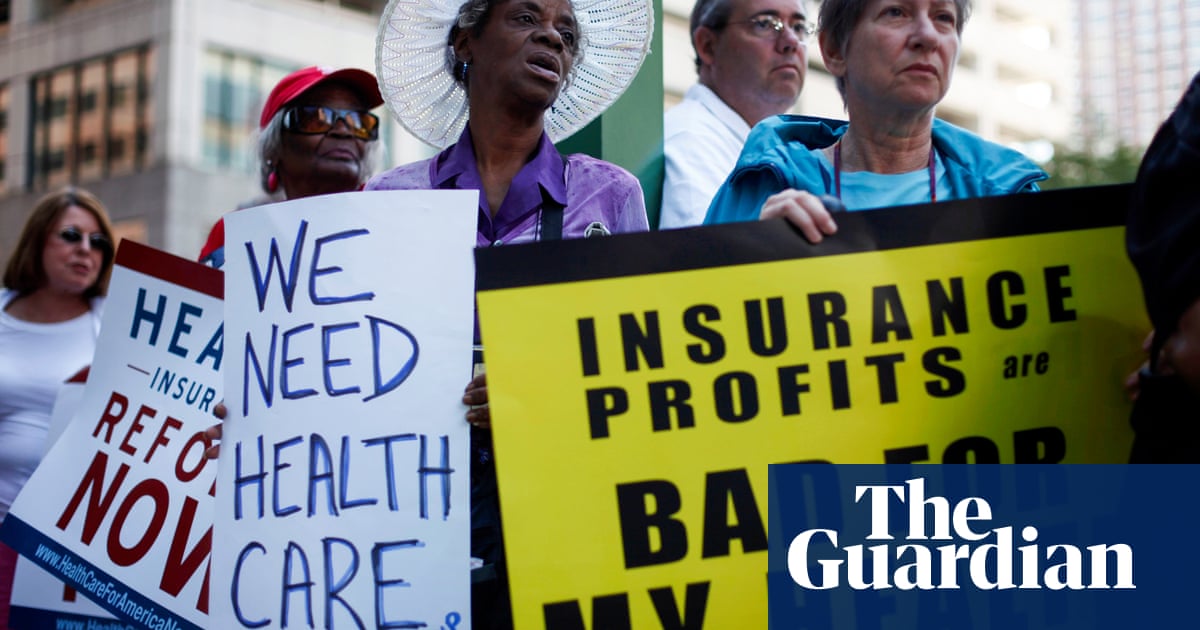Following the assassination of United Healthcare CEO Brian Thompson, as Thompson’s colleagues mourn and politicians denounce his killing, some online discussions showed little sympathy for Thompson or the industry he represented.
Instead, social media is filled with expressions of anger over the terrible experiences many Americans have with health insurance companies and outrage over the high profits they generate.
This belies the shock that the brutality of Thompson’s death also caused. The murder appeared to be premeditated and calculated.
A gunman dressed in black waited for Thompson outside the Midtown Manhattan Hilton, where he was scheduled to speak at an investor meeting, approached him from behind with a handgun with a silencer and shot the manager, police said.
He fled to Central Park on an e-bike. A manhunt is underway. The motive is unknown.
Andrew Witty, CEO of parent company UnitedHealth Group, called the attack “a terrible tragedy” in a message to the company’s employees shared with the Guardian.
“Our thoughts are with his family, especially his mother, his wife Paulie, his brother and his two sons who lost their father today,” Witty said.
Amy Klobuchar, a Democratic U.S. senator from Minnesota, described the killing as “a terrible and shocking act of violence.”
In contrast, a commenter on CNN’s Instagram post about Thompson’s death wrote, “I can’t find a place to take care of my daughter’s $60,000 cancer treatment. Thoughts and prayers.”
Another said: “An innocent victim was shot in cold blood. Have a heart, regardless of your health insurance.”
Comments on social media have oscillated between condemnation of violence and dark humor, celebratory memes and outright violent rhetoric, highlighting Americans’ deep and often uncomfortable connection to their own health care system.
An expert on political violence told the Guardian he sees this as part of the growing acceptance of violence as a means of resolving civil disputes in the US.
“Now the norms of violence are spreading into the commercial sector,” said Robert Pape, director of the University of Chicago’s Security and Threats Project. “That’s what I saw when I saw that.”
Although the motive for the murder is unknown, that hasn’t stopped rampant speculation that there was an obvious candidate – Thompson’s work in corporate health insurance. This speculation was only reinforced by the discovery of bullet casings with the words “deny,” “depose,” and “defend” scrawled in permanent marker.
“What I think we are really experiencing as a country is the erosion of norms,” Pape said, citing as another example the lack of sympathy for “politics” expressed on social media. “This essentially means viewing violence as the more normal or acceptable means of resolving civil disputes that should actually be resolved in a straightforward and non-violent manner.”
Thompson’s killing also highlighted the threat facing health care leaders at a time of American violence – from insurance companies to pharmaceutical companies to hospitals.
“It doesn’t seem paranoid to worry that someone who has been denied services they consider important may be in an emotionally unstable state and may take action,” said Michael Sherman, former chief medical officer at Point32Health told Stat, a health industry publication. “The most likely targets would be the chief medical officer … or the CEO.”
Online comments did not single out Thompson, a 50-year-old chartered accountant who reportedly kept a low profile. Instead, they targeted an industry that is often looked down upon in America. In the comments, “jokes” smacked of denial, delay, debt and impenetrable bureaucracy, all pervasive and denigrated experiences for the droves of Americans who are now or were insured with a private company.
Another comment: “Does he have a history of shootings? Cover denied.”
In terms of size, UnitedHealth Group is one of the largest companies in the world. Measured by its market cap of $539 billion, it surpasses household names like Mastercard and ExxonMobil. The company is one of the nation’s largest private insurers, providing health coverage through Medicare Advantage to more than 50 million Americans, from employer-based coverage to the elderly.
Thompson headed the company’s insurance department as a supposedly long-time employee who kept a low profile. Because it has an enormous footprint, it is also the subject of near-constant observation.
Thompson himself was involved in an investigation into insider trading at the company. Earlier this year, after the Justice Department opened an investigation into monopolistic practices, United executives sold $101 million worth of stock, including Thompson, who sold $15 million, before the public was informed of the deal, according to Crain’s New York Business investigation learned. Witty was called in to testify before Congress about a cyberattack in February that caused severe disruption across the healthcare system. UnitedHealthcare has been criticized for denying care to vulnerable patients.
While security executives from leading Fortune 500 companies gathered Wednesday, others in the public marveled that Thompson was unaccompanied on the way to the annual investor conference.
Michael Julian, CEO of MPS Security & Protection, told Axios that he was “shocked that the man didn’t have a protection unit,” suggesting that a head of an American healthcare giant would be an obvious target for those potentially harmed.
“Whether or not this technically fits into the box of political violence is obviously going to be an important question,” said Pape, whose recent study showed a dramatic increase in cases of violent threats against Democrats and Republicans since around 2017, during the first Trump term.
“But it also goes beyond the bigger picture of what’s happening in our country.”



